第6章 CHAPTER III(2)
Phoebe stood by one of the duck-ponds, a long pole in her hand, and a helpless expression in that doughlike countenance of hers, where aimless contours and features unite to make a kind of facial blur.
(What does the carrier see in it?) The pole was not long enough to reach the ducks, and Phoebe's method lacked spirit and adroitness, so that it was natural, perhaps, that they refused to leave the water, the evening being warm, with an uncommon fine sunset.
I saw the situation at once and ran to meet it with a glow of interest and anticipation. If there is anything in the world I enjoy, it is making somebody do something that he doesn't want to do; and if, when victory perches upon my banner, the somebody can be brought to say that he ought to have done it without my making him, that adds the unforgettable touch to pleasure, though seldom, alas! does it happen. Then ensued the delightful and stimulating hour that has now become a feature of the day; an hour in which the remembrance of the table-d'hote dinner at the Hydro, going on at identically the same time, only stirs me to a keener joy and gratitude.
The ducks swim round in circles, hide under the willows, and attempt to creep into the rat-holes in the banks, a stupidity so crass that it merits instant death, which it somehow always escapes. Then they come out in couples and waddle under the wrong fence into the lower meadow, fly madly under the tool-house, pitch blindly in with the sitting hens, and out again in short order, all the time quacking and squawking, honking and hissing like a bewildered orchestra. By dint of splashing the water with poles, throwing pebbles, beating the shrubs at the pond's edges, "shooing" frantically with our skirts, crawling beneath bars to head them off, and prodding them from under bushes to urge them on, we finally get the older ones out of the water and the younger ones into some sort of relation to their various retreats; but, owing to their lack of geography, hatred of home, and general recalcitrancy, they none of them turn up in the right place and have to be sorted out. We uncover the top of the little house, or the enclosure as it may be, or reach in at the door, and, seizing the struggling victim, drag him forth and take him where he should have had the wit to go in the first instance. The weak ones get in with the strong and are in danger of being trampled; two May goslings that look almost full-grown have run into a house with a brood of ducklings a week old. There are twenty-seven crowded into one coop, five in another, nineteen in another; the gosling with one leg has to come out, and the duckling threatened with the gapes; their place is with the "invaleeds," as Phoebe calls them, but they never learn the location of the hospital, nor have the slightest scruple about spreading contagious diseases.
Finally, when we have separated and sorted exhaustively, an operation in which Phoebe shows a delicacy of discrimination and a fearlessness of attack amounting to genius, we count the entire number and find several missing. Searching for their animate or inanimate bodies, we "scoop" one from under the tool-house, chance upon two more who are being harried and pecked by the big geese in the lower meadow, and discover one sailing by himself in solitary splendour in the middle of the deserted pond, a look of evil triumph in his bead-like eye. Still we lack one young duckling, and he at length is found dead by the hedge. A rat has evidently seized him and choked him at a single throttle, but in such haste that he has not had time to carry away the tiny body.
"Poor think!" says Phoebe tearfully; "it looks as if it was 'it with some kind of a wepping. I don't know whatever to do with the rats, they're gettin' that fearocious!"
Before I was admitted into daily contact with the living goose (my previous intercourse with him having been carried on when gravy and stuffing obscured his true personality), I thought him a very Dreyfus among fowls, a sorely slandered bird, to whom justice had never been done; for even the gentle Darwin is hard upon him. My opinion is undergoing some slight modifications, but I withhold judgment at present, hoping that some of the follies, faults, vagaries, and limitations that I observe in Phoebe's geese may be due to Phoebe's educational methods, which were, before my advent, those of the darkest ages.